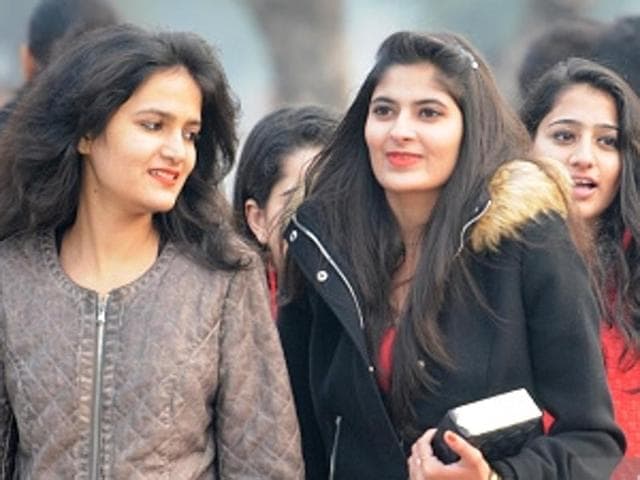98% Chandigarh women happy with life; most feel free to pick partners
Chandigarh’s women are zen. Freedom to love and choose their romantic/ sexual partner and keeping up with their dreams looks bright for them.
Chandigarh’s women are zen. Freedom to love and choose their romantic/ sexual partner and keeping up with their dreams looks bright for them.

An HT-Ipsos survey on working women between 25 and 40 years in eight Indian cities done to coincide with International Women’s Day on March 8, shows an overwhelming majority of the respondents feel they are at a satisfactory place in their lives. The survey says only 2% respondents feel their present life is the farthest from what they had dreamt of when they were younger.
“The finding is very much in keeping with Chandigarh’s island status. It is a unique and modern city. There is a strong work culture for women,” says city-based gender specialist Rainuka Dagar.
Another promising finding is that a major chunk of women are free to choose their romantic or sexual partners. Only 5% said they had least control over the choice of their partner, which is same as the national figure.
Neel Kamal Puri, a city-based English professor, says, “Things have changed a lot. Kids are more open with parents now. They even come up to me to discuss their latest heartbreak. Girls’ parents know about their boyfriends.” The survey threw up other interesting results too. For instance, 79% feel they would be comfortable with a husband/partner who earns/ earned less than them.
This is the second highest among the cities surveyed. “These are useful pointers for policy initiatives for women’s empowerment,” says Dagar, but cautions, “Earning hasn’t spurred any change in gender roles or established a financial hegemony. The purpose of education and economic freedom is to emancipate women to break out of gender roles. But that remains constant; the woman’s role as nurturer, provider and breeder. Reconstructing these roles is the challenge.” At 79%, Chandigarh is third when it comes to working women living independently. The national figure is 70%. Theatre activist Neelam Mansingh Chowdhry says, “I think it’s more practical. It’s an economic benefit. Earlier, if women wanted to work outside they would only be allowed if there was a relative in that town. Things are changing. Look at the rising number of paying guest and rented places for girls in town.”





